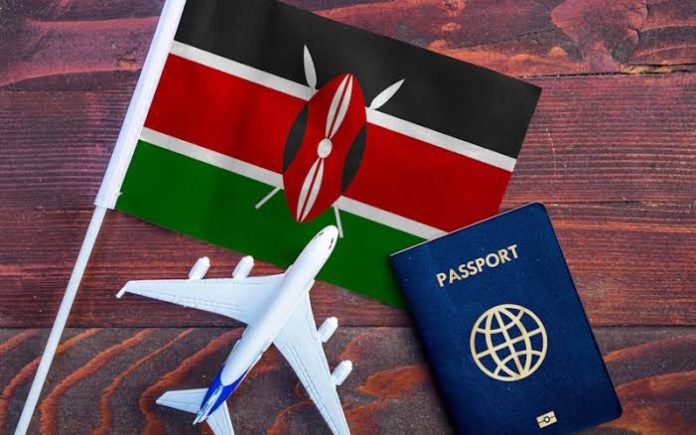Facebook Twitter (X) Instagram Somali Magazine - People's Magazine
In a significant move aimed at boosting tourism and deepening regional ties, the government of Kenya has expanded its list of countries and categories exempted from paying the Electronic Travel Authorization (eTA) fee. This policy shift is designed to make travel to Kenya easier and more accessible for select visitors while reinforcing diplomatic relationships and encouraging economic cooperation.
Among the countries newly added to the eTA fee exemption list are Ethiopia, South Africa, Eritrea, Congo-Brazzaville, Comoros, Mozambique, and San Marino. These nations have entered into visa waiver agreements with Kenya, making their citizens eligible for the exemption. The goal is to promote smoother travel experiences and enhanced engagement between Kenya and its continental and international partners.
However, even with the fee exemption in place, travelers from these countries must still complete the eTA application online prior to their arrival in Kenya. The application process remains a crucial requirement to ensure proper travel documentation and national security procedures are followed.
In another major step, Kenya has granted a six-month eTA exemption to citizens of East African Community (EAC) member states. This includes Burundi, the Democratic Republic of Congo, Rwanda, South Sudan, Tanzania, and Uganda. This exemption underscores Kenya’s commitment to EAC integration and its vision for greater free movement within the region.
The exemptions go beyond just foreign nationals. Several categories of travelers are also spared from both the eTA requirement and the associated $30 fee. Kenyan citizens, permanent residents, and individuals holding valid work permits are not required to apply for the eTA. Additionally, those with United Nations Convention travel documents issued by the Kenyan government are also exempt.
Members of diplomatic missions and international organizations accredited to Kenya, along with holders of diplomatic, official, or service passports who are on official duty, fall under the exemption umbrella as well. These categories are part of ongoing efforts to streamline the process for officials and representatives engaged in critical international and bilateral missions.
Crew members of ships, aircraft, trains, and other vehicles who are simply transiting through Kenya to another destination are also not required to secure an eTA, provided they do not leave the precincts of their entry points. Similarly, private aircraft owners stopping for fuel without disembarking are exempt from the process entirely.
This expansion of exemptions reflects Kenya’s strategic push to become a more attractive destination for tourism, trade, and diplomacy. By simplifying travel regulations and reducing entry costs, Kenya is making a bold move to attract a larger volume of travelers while easing pressure on border and immigration systems.
The eTA, which remains mandatory for most travelers, is valid for 90 days and must be obtained prior to travel. Visitors are encouraged to apply well in advance through the official online portal to ensure smooth processing. As Kenya strengthens its position as a key gateway in East Africa, these exemptions are expected to encourage greater regional mobility, foster trade, and accelerate cultural exchange.

